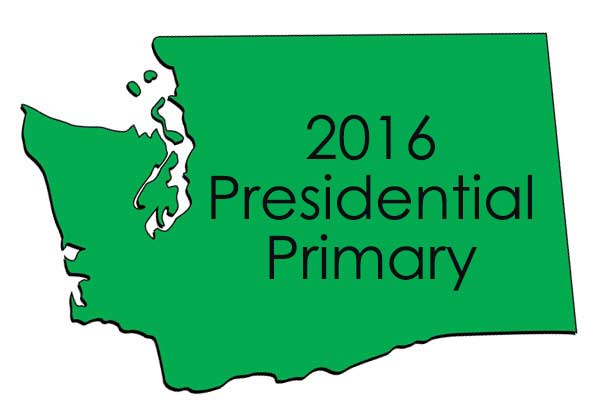Secretary Wyman unveils 2016 Presidential Primary plan
Secretary of State Kim Wyman is urging lawmakers to authorize a 2016 Presidential Primary and ensure that voters have a strong voice in the nominating process for the highest office in the land.
Wyman, the state’s chief elections officer, said there will be huge public interest in the wide-open White House race next year, and that voters here deserve to be involved. Unveiling her proposal on Tuesday, she said:
“My goal is to secure a voice for our Washington voters with a plan that assures a meaningful election where the results are used to allocate at least part of the national convention delegates from our state. A primary engages voters and would attract the candidates to our communities to learn about our issues and concerns.”
The Presidential Primary was created by lawmakers in 1989 as an Initiative to the Legislature, and is used in tandem with the caucus/convention process that chooses actual delegates.
The primary draws more than 10 times as many participants than the caucuses. Current state law says the caucus system is “unnecessarily restrictive of voter participation” and disenfranchises members of the armed service, people with work conflicts, those with disabilities and others who might not be able to attend a caucus.
UPDATE: You can watch TVW’s coverage of Wyman’s news conference on her Presidential Primary plan here.
The Wyman plan, which has been introduced in both House and Senate with bipartisan sponsorship, includes:
- A “voter protection” provision says both major parties must demonstrate by Oct. 1 their intention to use the primary results in allocation of delegates. No particular percentage is included in the Secretary’s bill.
- A default date of the second Tuesday in March, rather than the current date of the fourth Tuesday in May. In 2016, this is March 8, one week after “Super Tuesday,” the earliest that most states can hold primaries or caucuses.
- Voters will declare their party and vote for a candidate on that party’s list of candidates. Lists of voters by party choice will be made public. The Presidential Primary is the only time Washington voters are asked to declare a party preference. Voters do not register by party.
- If both parties do not agree to use the primary results to allocate at least some of their delegates, the primary would use a single ballot list of all candidates, with no party declaration or oath required of the voter, and no record kept of party affiliation.
- Party leaders and the Secretary will meet soon to work on a mutually agreeable date. June 30 is the deadline to pick the date. The legislation moves forward primary-related deadlines to comply.
- By law, the state covers the cost of the election. The estimate for 2016 is $11.5 million. Most of that is to reimburse the 39 counties for running the election. The state’s cost of about $628,000 is to provide a Voters’ Pamphlet.
- The election would be conducted by mail over the course of 18 days.
